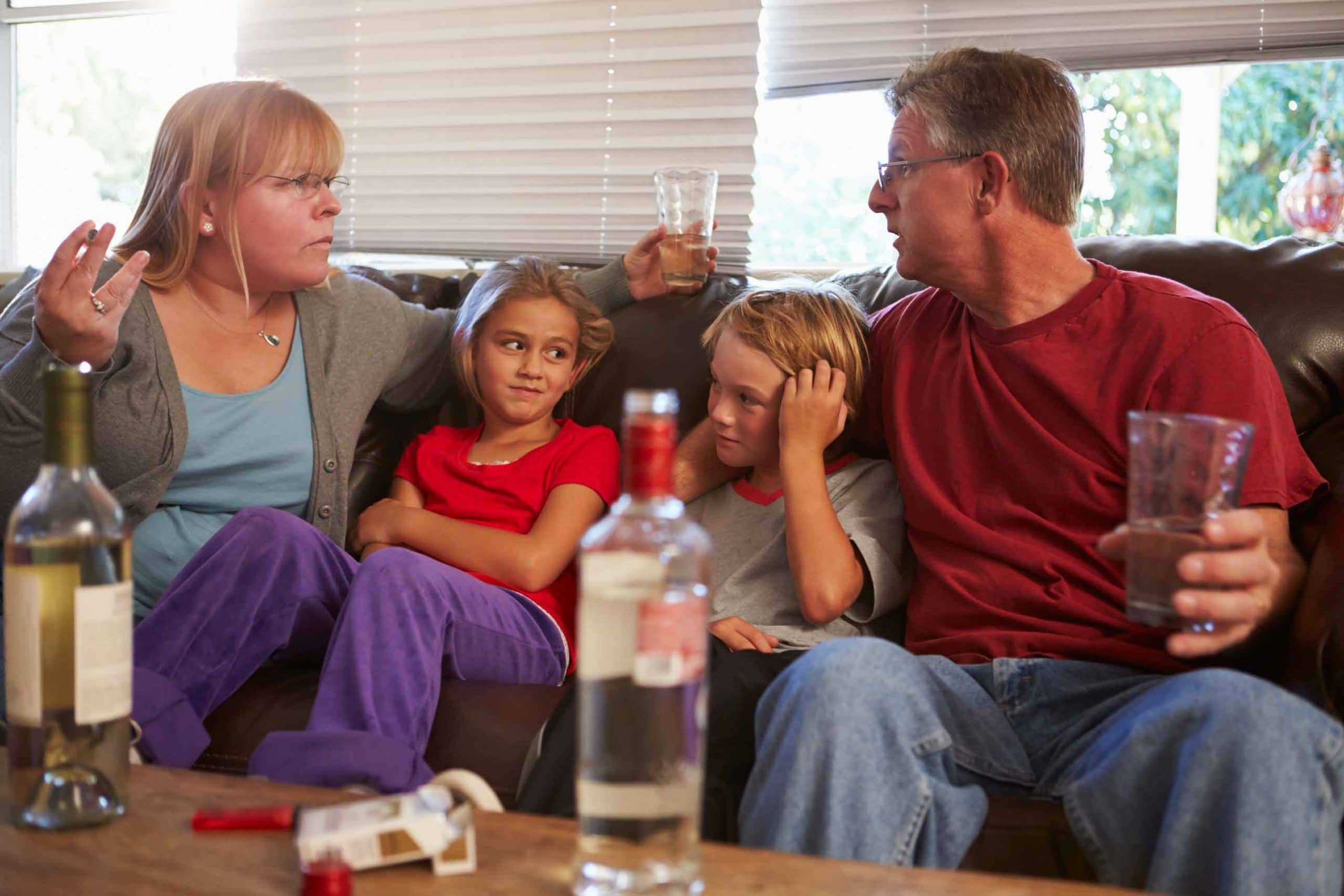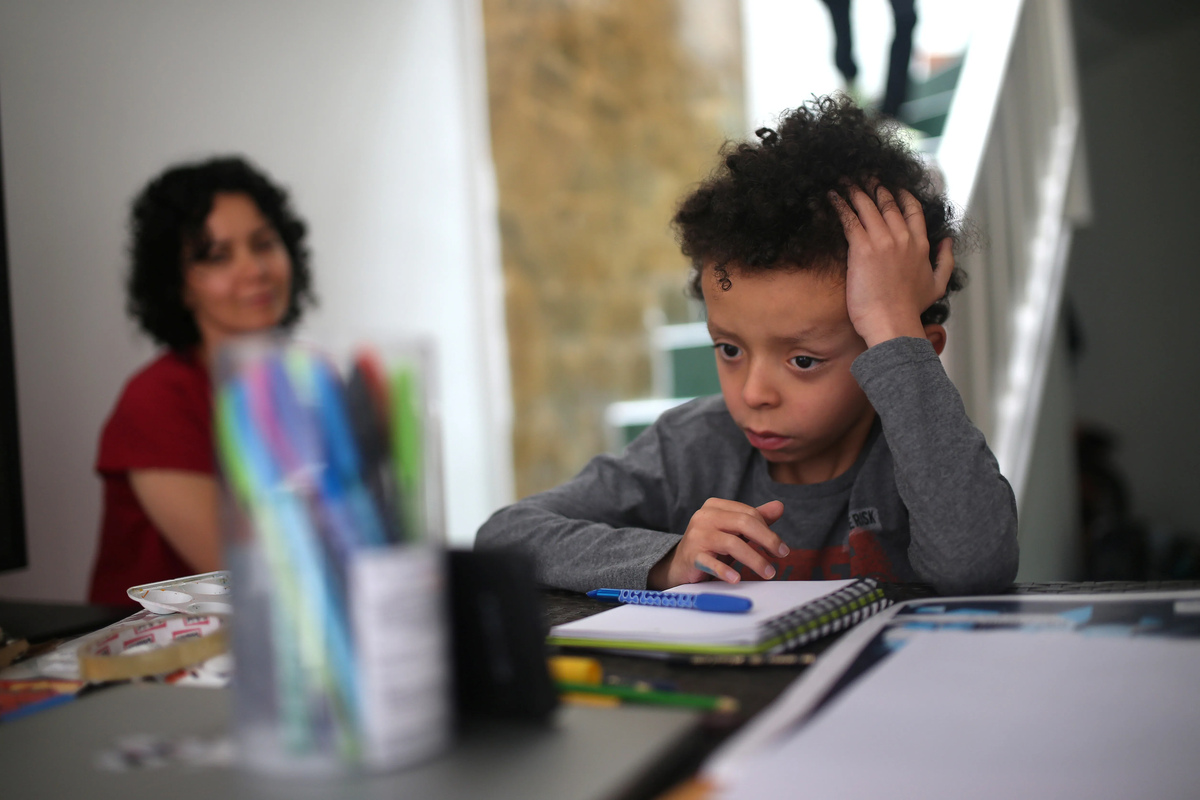Home>Health & Lifestyle>Family & Pet-Friendly Home Design>How Does Alcohol Abuse Affect The Home Life


Family & Pet-Friendly Home Design
How Does Alcohol Abuse Affect The Home Life
Published: December 22, 2023
Learn how alcohol abuse impacts family and pet-friendly home design. Find solutions to maintain a safe and supportive environment despite the challenges.
(Many of the links in this article redirect to a specific reviewed product. Your purchase of these products through affiliate links helps to generate commission for Storables.com, at no extra cost. Learn more)
Introduction
Welcome to the complex and often challenging world of family dynamics impacted by alcohol abuse. The effects of alcohol abuse on the home life can be profound, reaching far beyond the individual struggling with addiction. This article will delve into the multifaceted ways in which alcohol abuse can disrupt the harmony and stability of a family environment, affecting relationships, emotional well-being, and the overall quality of life for everyone involved. By shedding light on these issues, we hope to provide insight and support for those grappling with the far-reaching consequences of alcohol abuse within their family unit.
Key Takeaways:
- Alcohol abuse can cause tension, fear, and uncertainty in families, affecting relationships and emotional well-being. It’s important to provide support and understanding to those dealing with these challenges.
- Alcohol abuse can lead to financial strain, emotional distress, and even physical and verbal abuse within families. Creating a supportive and non-judgmental environment is crucial for healing and growth.
Read more: How Technology Affects Home Life
The Impact of Alcohol Abuse on Family Dynamics
Alcohol abuse can cast a long shadow over family dynamics, altering the very fabric of relationships and interactions within the household. The effects of alcohol abuse ripple through every aspect of family life, leaving a trail of emotional, psychological, and practical challenges in its wake.
When a family member struggles with alcohol abuse, the entire household can experience a pervasive sense of instability and unease. The unpredictable behavior and emotional volatility associated with alcohol abuse can create an environment fraught with tension, fear, and uncertainty. As a result, family members may find themselves walking on eggshells, never knowing what to expect from one day to the next.
Furthermore, the emotional and psychological toll of living with alcohol abuse can be staggering. Family members may experience a range of emotions, including anger, guilt, shame, and profound sadness as they witness their loved one grapple with addiction. The constant worry and fear for their well-being can take a significant toll on their own mental health, leading to anxiety, depression, and a sense of helplessness.
Moreover, the dynamics between family members can undergo a profound shift in the presence of alcohol abuse. Trust may erode, communication may break down, and the once-solid foundation of the family unit may begin to crumble. This can lead to a sense of isolation and disconnection, as family members struggle to navigate the turbulent waters of addiction.
Ultimately, the impact of alcohol abuse on family dynamics is far-reaching and multifaceted, permeating every aspect of daily life and challenging the very core of familial relationships.
Financial Strain and Instability
Alcohol abuse can exert a significant financial burden on the family unit, leading to instability and hardship. The costs associated with alcohol consumption, including purchasing alcohol, healthcare expenses, and potential legal fees, can quickly escalate, placing a strain on the family’s financial resources.
Furthermore, the consequences of alcohol abuse, such as job loss or decreased work productivity, can result in a loss of income for the family. This loss of financial stability can lead to an inability to meet basic needs, such as housing, food, and healthcare, creating a precarious and stressful living situation for all family members.
Moreover, the financial strain caused by alcohol abuse can contribute to a sense of insecurity and anxiety within the family. Children may feel the impact of this instability keenly, experiencing heightened stress and worry about their future. The inability to provide a stable and secure environment can have long-term repercussions on their well-being and sense of security.
Additionally, the financial strain resulting from alcohol abuse can lead to conflicts within the family, as members grapple with the allocation of limited resources and the stress of making ends meet. This can create a toxic cycle of financial strain, emotional upheaval, and further strain on family relationships, exacerbating the already challenging dynamics within the household.
Ultimately, the financial strain and instability wrought by alcohol abuse can permeate every aspect of family life, creating a pervasive sense of insecurity and hardship that can be difficult to overcome.
Emotional and Psychological Effects
Alcohol abuse within the family can inflict profound emotional and psychological effects on all members, creating a pervasive atmosphere of distress and upheaval. Witnessing a loved one struggle with alcohol addiction can evoke a range of intense emotions, including fear, anger, sadness, and confusion. The emotional toll of navigating this tumultuous terrain can be staggering, leaving lasting scars on the hearts and minds of family members.
Children, in particular, may experience a profound sense of confusion and emotional turmoil when faced with a parent or caregiver’s alcohol abuse. They may grapple with feelings of abandonment, shame, and a deep-seated longing for stability and security. The unpredictable nature of alcohol abuse can lead to a pervasive sense of anxiety and fear, disrupting the natural rhythm of childhood and impeding emotional development.
Furthermore, the psychological effects of living in an environment marked by alcohol abuse can be far-reaching. Family members may experience symptoms of anxiety, depression, and post-traumatic stress disorder as they navigate the complex and often traumatic repercussions of addiction. The constant state of hypervigilance and the need to adapt to unpredictable circumstances can take a significant toll on mental well-being, leading to a sense of helplessness and emotional exhaustion.
Moreover, the emotional and psychological effects of alcohol abuse can extend beyond the immediate family unit, impacting relationships with extended family, friends, and the broader community. The stigma and shame associated with alcohol addiction can lead to social isolation and a sense of alienation, further compounding the emotional burden carried by family members.
Ultimately, the emotional and psychological effects of alcohol abuse can permeate every aspect of family life, leaving a trail of emotional devastation and psychological distress in its wake.
Seeking help from a counselor or support group can provide guidance and support for both the individual struggling with alcohol abuse and their family members. It’s important to address the issue and seek help as a family unit.
Physical and Verbal Abuse
Alcohol abuse within the family can lead to a heightened risk of both physical and verbal abuse, creating a toxic and volatile environment for all members. The influence of alcohol can exacerbate existing tensions and frustrations, leading to an increased likelihood of aggressive behavior and verbal outbursts.
Physical abuse, including acts of violence and aggression, can escalate in the presence of alcohol abuse. The impaired judgment and loss of inhibitions associated with alcohol consumption can lead to explosive and potentially dangerous situations within the home. Family members, particularly children and vulnerable individuals, may become targets of physical abuse, facing the devastating consequences of violence within the household.
Moreover, verbal abuse can become a pervasive and damaging aspect of family life when alcohol abuse is present. The influence of alcohol can lead to a loss of control over words and actions, resulting in hurtful, demeaning, and emotionally damaging language directed at family members. Verbal abuse can create a toxic atmosphere of fear, shame, and emotional distress, leaving lasting scars on the hearts and minds of those affected.
Furthermore, the presence of physical and verbal abuse within the family can perpetuate a cycle of trauma and dysfunction, leading to long-term repercussions for all members. Children, in particular, may experience profound emotional and psychological distress as a result of exposure to physical and verbal abuse, impeding their emotional development and sense of safety.
Ultimately, the presence of physical and verbal abuse within the context of alcohol abuse can create a deeply harmful and perilous environment for all family members, perpetuating a cycle of trauma and emotional upheaval that can be difficult to escape.
Neglect and Unavailability
Alcohol abuse can lead to a pervasive sense of neglect and unavailability within the family unit, as the individual struggling with addiction may become increasingly preoccupied with obtaining and consuming alcohol, leaving little room for meaningful engagement with their loved ones.
Children, in particular, may experience a profound sense of neglect and emotional abandonment when a parent or caregiver is consumed by alcohol abuse. The inability of the individual to fulfill their parental responsibilities due to their preoccupation with alcohol can lead to a pervasive sense of emotional and physical neglect, leaving children longing for the presence and support of a nurturing caregiver.
Furthermore, the unavailability of the individual struggling with alcohol abuse can create a sense of instability and uncertainty within the family. The unpredictable nature of their behavior, as well as their emotional and physical unavailability, can lead to a pervasive sense of anxiety and distress among family members, who may struggle to predict and navigate the challenges presented by the individual’s addiction.
Moreover, the neglect and unavailability resulting from alcohol abuse can lead to a breakdown in family relationships and a sense of emotional disconnection. The inability of the individual to engage meaningfully with their loved ones can create a profound sense of loss and longing, perpetuating a cycle of emotional distress and instability within the family unit.
Ultimately, the pervasive sense of neglect and unavailability resulting from alcohol abuse can create a challenging and emotionally fraught environment for all family members, perpetuating a cycle of emotional distress and instability that can be difficult to overcome.
Role Reversal and Parentification
Alcohol abuse within the family can lead to a phenomenon known as role reversal and parentification, in which children may be compelled to assume adult responsibilities and caregiving roles far beyond their years. The pervasive impact of alcohol abuse can disrupt the traditional family dynamic, leading to a reversal of roles in which children may find themselves tasked with caring for their parent or siblings.
Children who experience role reversal and parentification may be forced to take on responsibilities such as cooking, cleaning, and providing emotional support for family members struggling with alcohol abuse. This premature shouldering of adult responsibilities can impede their emotional and psychological development, robbing them of a carefree childhood and imposing a heavy burden of responsibility.
Furthermore, the experience of role reversal and parentification can lead to a profound sense of confusion and emotional distress for children, who may struggle to reconcile their caregiving responsibilities with their own need for support and guidance. The blurring of boundaries between parent and child can create a pervasive sense of emotional upheaval and instability within the family unit.
Moreover, the experience of role reversal and parentification can have long-term repercussions for children, impacting their sense of self-worth, autonomy, and emotional well-being. The premature assumption of adult responsibilities can impede their ability to form healthy relationships, pursue their own goals, and navigate the challenges of adolescence and young adulthood.
Ultimately, the experience of role reversal and parentification resulting from alcohol abuse can create a challenging and emotionally fraught environment for children and family members, perpetuating a cycle of emotional distress and instability that can have lasting repercussions.
Conclusion
Alcohol abuse casts a long and pervasive shadow over the dynamics of family life, leaving a trail of emotional, psychological, and practical challenges in its wake. The impact of alcohol abuse on the home life extends far beyond the individual struggling with addiction, permeating every aspect of familial relationships and interactions. The consequences of alcohol abuse can manifest in financial strain, emotional distress, physical and verbal abuse, neglect, and role reversal, creating an environment fraught with tension, fear, and uncertainty.
It is crucial to recognize the far-reaching effects of alcohol abuse on family dynamics and to provide support and resources for those grappling with the challenges it presents. By shedding light on these issues, we hope to foster understanding and empathy for individuals and families navigating the complexities of alcohol addiction. It is essential to create a supportive and non-judgmental environment in which those affected by alcohol abuse can seek help, guidance, and healing.
Furthermore, addressing the impact of alcohol abuse on family dynamics requires a multifaceted approach that encompasses emotional support, access to resources, and opportunities for healing and growth. Providing education and awareness about the effects of alcohol abuse on family life is crucial in fostering empathy and understanding within communities, as well as breaking the cycle of stigma and shame surrounding addiction.
Ultimately, by acknowledging and addressing the profound impact of alcohol abuse on family dynamics, we can work towards creating a more compassionate and supportive environment for individuals and families grappling with the challenges of addiction. It is through empathy, understanding, and a commitment to fostering healing and growth that we can begin to unravel the complex web of challenges presented by alcohol abuse within the family unit.
Frequently Asked Questions about How Does Alcohol Abuse Affect The Home Life
Was this page helpful?
At Storables.com, we guarantee accurate and reliable information. Our content, validated by Expert Board Contributors, is crafted following stringent Editorial Policies. We're committed to providing you with well-researched, expert-backed insights for all your informational needs.















0 thoughts on “How Does Alcohol Abuse Affect The Home Life”